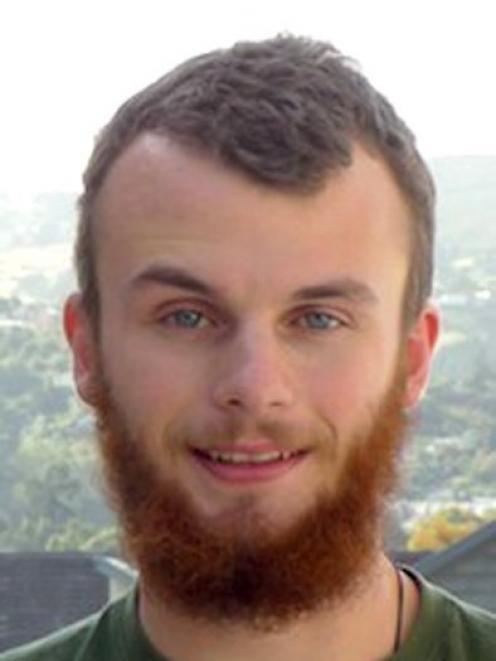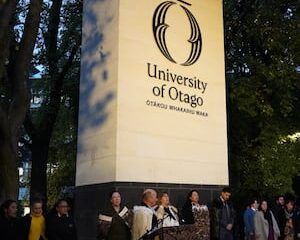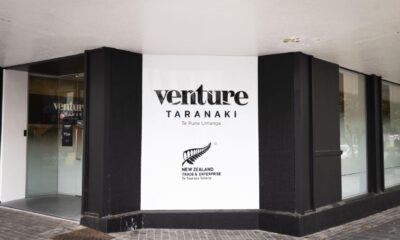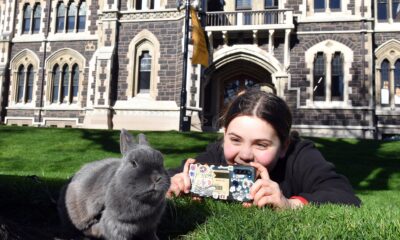Science
University of Otago’s Dr. Trainor Awarded Fellowship for Quantum Research

A significant advancement in quantum technology has been marked by the recent award of a prestigious fellowship to Dr. Trainor, a postdoctoral fellow at the University of Otago. He has received the Royal Society Te Apārangi Mana Tūāpapa Future Leader Fellowship, valued at $820,000 over four years. This funding will support his research into the potential applications of crystals in quantum memory storage, which could revolutionise computing, security, and networking technologies.
Dr. Trainor’s research focuses on specially lab-grown crystals that incorporate small amounts of rare earth elements, such as erbium and neodymium. These materials, known as rare-earth-doped magnetically ordered crystals, have shown promising capabilities for use in optical quantum memory systems, which could transform data storage methods.
To achieve optimal conditions for the practical application of this technology, Dr. Trainor and his team have discovered that cooling these crystals to temperatures even lower than those found in outer space, combined with laser pulse manipulation, allows for the storage and retrieval of single particles of light, or photons. He stated, “I have been using such crystals to store single particles of light — photons — and recall them, which could be used as part of a future quantum network.” His ongoing work aims to characterise these crystals further, seeking to identify the ideal conditions under which they operate most effectively.
Broader Impact and Additional Fellowships
Dr. Trainor is not the only researcher at the University of Otago to have received recognition through the Mana Tūāpapa Future Leader Fellowships. Fellow researchers such as Dr. Alice-Roza Eruera, Dr. Rebecca French, Dr. Caitlin Owen, and Dr. Wahineata Smith have also been awarded fellowships for their impactful studies.
Dr. Eruera will explore the evolution of ancient viruses to evaluate their potential applications in biotechnology and medicine. Meanwhile, Dr. French aims to investigate whether viruses carried by rats in New Zealand could lead to human outbreaks. Dr. Owen is focused on developing a more transparent and energy-efficient system for automated machine learning, while Dr. Smith will study the experiences of Māori and Tongan families raising children with dual heritages.
Additionally, Prof. Neil Gemmell from Otago has earned the Royal Society Mana Tūārangi Distinguished Researcher Fellowship, worth $220,000. This fellowship will enable him to investigate the critical role of mitochondrial DNA (mtDNA) in human health, fertility, and ageing using advanced genetic tools. He commented that this research will enhance understanding of how the mitochondrial genome influences fitness, behaviour, and ageing in a sex-specific manner.
The recognition of these researchers underscores the University of Otago’s commitment to advancing scientific knowledge and innovation in a variety of fields. The work being done has the potential not only to contribute to academic research but also to foster practical solutions that can benefit society at large.
-

 Sports2 months ago
Sports2 months agoNetball New Zealand Stands Down Dame Noeline Taurua for Series
-

 Entertainment2 months ago
Entertainment2 months agoTributes Pour In for Lachlan Rofe, Reality Star, Dead at 47
-

 Entertainment3 weeks ago
Entertainment3 weeks agoNew ‘Maverick’ Chaser Joins Beat the Chasers Season Finale
-

 Sports2 months ago
Sports2 months agoSilver Ferns Legend Laura Langman Criticizes Team’s Attitude
-

 Politics4 weeks ago
Politics4 weeks agoNetball NZ Calls for Respect Amid Dame Taurua’s Standoff
-

 Entertainment2 months ago
Entertainment2 months agoKhloe Kardashian Embraces Innovative Stem Cell Therapy in Mexico
-

 Sports11 hours ago
Sports11 hours agoEli Katoa Rushed to Hospital After Sideline Incident During Match
-

 World3 months ago
World3 months agoPolice Arrest Multiple Individuals During Funeral for Zain Taikato-Fox
-

 Sports3 months ago
Sports3 months agoGaël Monfils Set to Defend ASB Classic Title in January 2026
-

 Entertainment1 month ago
Entertainment1 month agoTyson Fury’s Daughter Venezuela Gets Engaged at Birthday Bash
-

 Sports1 month ago
Sports1 month agoHeather McMahan Steps Down as Ryder Cup Host After Controversy
-

 World2 weeks ago
World2 weeks agoSevere Winds Hit New Zealand, Over 100 Flights Canceled




















